/regions/political
Political
Big dams and protests in India: A study of Hirakud dam – An article in EPW
Posted on 06 Jan, 2012 12:29 PMIt is evident that the domestic resistance to the project was variously compromised by nationalist rhetoric, imperatives of state development and absence of transnational support. The Hirakud dam project has failed on all of its objectives – flood management, hydropower production, irrigation and navigation. Its socio-economic impact has been devastating.
Living rivers, dying rivers: Bagmati river in Nepal
Posted on 05 Jan, 2012 06:07 PMBagmati river in Kathmandu: From holy river to unthinkable flowing filth
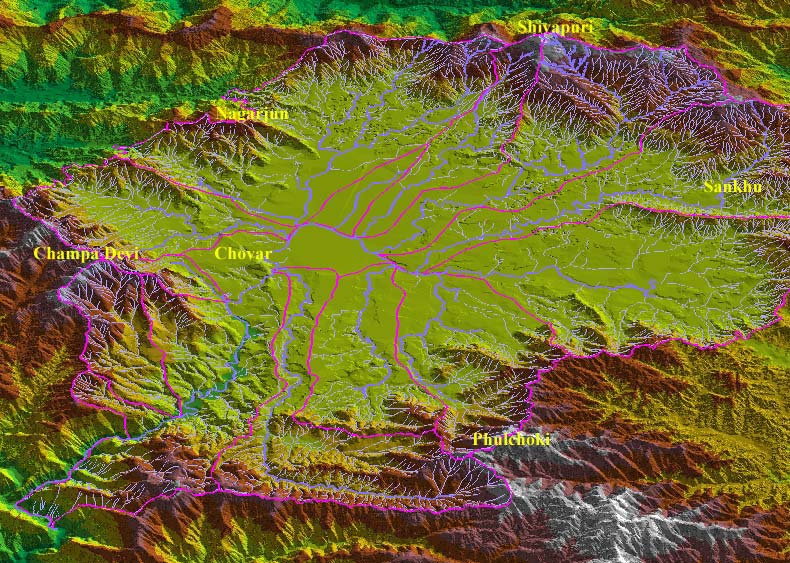
Ajaya Dixit initiated his presentation with a general account of how rivers shape the landscape and how riverine ecosystems have nurtured society and kept civilisations vibrant, cultured and creative. Dixit went on to discuss the basin characteristics of the Bagmati, a tributary of the Kosi that rises in the Shivapuri hills, north of the Kathmandu valley. Around fifteen percent of the basin area (3700 sqkm) lies in Nepal, while the remaining is in India. The average annual rainfall in the basin is 1400 mm and is more than 2000 mm in the hills. Bagmati is a seasonal river with rainfall and springs as its main source. Its mean flow is 15.6 cubic metre/second and low flow is 0.15 cubic metre/second in April.
Kathmandu lies in the Upper Bagmati basin and studies suggest that an ancient lake called the Paleo-Kathmandu lay within the Kathmandu valley as a lacustrine formation. Early settlers lived in lower slopes and used springs and river in the upper reaches. When they moved to the valley floor, they built dongia dharas, which are stone water spouts fed by the unconfined aquifers and delivered water through surface channels. Even today, dongia dharas dated back to 1500 years exist. The state built canals (raj kulo) tapped the upper stretches of the rivers close to the mountains. Rivers and irrigation helped recharge aquifers and ponds.
However, rising urbanisation has damaged these ancient artifacts. Over the last sixty years Kathmandu has expanded massively and its population has increased from 0.41 million in 1951 to 2.6 million in 2011. The city has a huge transient population aside from this, reducing it to a concrete nightmare. Seismologists suggest that Kathmandu is a rubble city in the making. Though the Bagmati river flow has not changed significantly in the last seventy years, the character of the river has been transformed significantly during the period 1970 to 1990. The river has been canalised while the dumping of the city’s garbage into it continues. Dixit identified a plethora of problems faced by the river such as upstream water diversion for drinking water needs, disposal of untreated liquid waste, disposal of solid waste, river jacketing for roads and commercial activities, sand mining and physical encroachment.
The state of the river is an outcome of the current approach to waste management particularly liquid waste management. Three types of waste water namely yellow water flux, grey water and yellow black flux are being generated and flowing water is being used as a vehicle to dispose these. The idea of a water based disposal system e.g. flush toilet embedded in Victorian engineering has led to a technological lock-in with the result that the notion of a natural hydrological cycle has undergone a fundamental transformation.
All the same, the bulk of the load in the river is biological though there are some factories releasing effluents. In the last 20 years some of them have been closed or relocated and the river now stands a chance of being salvaged.

SWSM invites applications for State Consultant, Hydrogeology, Ranchi, Jharkhand – Apply by January 5, 2012
Posted on 05 Jan, 2012 09:17 AMContent courtesy: DevNetJobsIndia

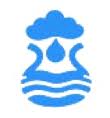
Description:
The flagship programmes of Government of India, Total Sanitation Campaign (TSC) and National Rural Drinking Water Programme (NRDWP) are being implemented by the State Water and Sanitation Mission (SWSM) Jharkhand, Government of Jharkhand. The NRDWP guideline makes provision for a state level Water and Sanitation Support Organisation for taking up various support activities under the drinking water and sanitation sector. In Jharkhand the state level Programme Management Unit, which is registered as a society has been working on planning, monitoring and support in programme implementation. The State Water and Sanitation Mission, Jharkhand wishes to recruit a State Consultant, Hydrogeology.
SWSM invites applications for State Consultant – Water Quality, Ranchi, Jharkhand – Apply by January 5, 2012
Posted on 05 Jan, 2012 08:59 AMContent courtesy: DevNetJobsIndia

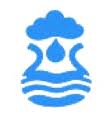
Description:
The flagship programmes of Government of India, Total Sanitation Campaign (TSC) and National Rural Drinking Water Programme (NRDWP) are being implemented by the State Water and Sanitation Mission (SWSM) Jharkhand, Government of Jharkhand. The NRDWP guideline makes provision for a state level Water and Sanitation Support Organisation for taking up various support activities under the drinking water and sanitation sector. In Jharkhand the state level Programme Management Unit, which is registered as a society has been working on planning, monitoring and support in programme implementation. The State Water and Sanitation Mission, Jharkhand wishes to recruit a State Co-ordinator (Water Quality).
SWSM invites applications for Assistant State Co-ordinator (IEC), Jharkhand – Apply by January 5, 2012
Posted on 05 Jan, 2012 08:39 AMContent courtesy: DevNetJobsIndia

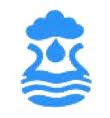
Description:
The flagship programmes of Government of India, Total Sanitation Campaign (TSC) and National Rural Drinking Water Programme (NRDWP) are being implemented by the State Water and Sanitation Mission (SWSM) Jharkhand, Government of Jharkhand. The NRDWP guideline makes provision for a state level Water and Sanitation Support Organisation for taking up various support activities under the drinking water and sanitation sector. In Jharkhand the state level Programme Management Unit, which is registered as a society has been working on planning, monitoring and support in programme implementation. The State Water and Sanitation Mission, Jharkhand wishes to recruit an Assistant State Co-ordinator (IEC).
Second WMO international conference on "Indian Ocean Tropical Cyclones and Climate Change", IMD, February 14-17, 2012, New Delhi
Posted on 05 Jan, 2012 08:04 AM


IWMI-Tata Policy Research Program invites research papers on gender equity and irrigation - Anand – Apply by January 15, 2012
Posted on 05 Jan, 2012 06:56 AM
IWMI-TATA Water Policy Research Program is a collaborative initiative between a research institution and a corporate body, the International Water Management Institute (IWMI) and the Sir Ratan TATA Trust (SRTT). This partnership emerged from a shared concern regarding the growing water stress in different parts of India.
While the issues and problems related to water have been well articulated by several stakeholders over time, the IWMI-TATA program aims at evolving fresh perspectives and sustainable solutions by drawing from the vast research carried out across the country and take these in the form of policy recommendations to the policy makers at the national, state and local level.
National Conference on Environmental Surveillance for Natural Resource Management – 2012, School of Environment & Earth Sciences, January 9 & 10, 2012, Jalgaon
Posted on 04 Jan, 2012 04:03 PMOrganizers: School of Environment & Earth Sciences, North Maharashtra University, Jalgaon
Venue: North Maharashtra University, Jalgaon

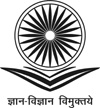
Description:
The School of Environmental & Earth Sciences, North Maharashtra University, Jalgaon works in the area of environmental awareness, resource conservation, geological explorations, field visits and social activities in the field of environment, geology and geography. It is recognized as a key resource centre by the Rural Water Supply & Sanitation Department of the Government of Maharashtra. Over a period of 10 years the School has emerged as a centre of quality teaching, research & extension activities in environmental & earth sciences. It has state of art equipments and facilities for research in identified thrust areas.
Living Rivers, Dying Rivers - Eighth in the series of lectures at India International Centre - Rivers in Karnataka , January 28, 2012, New Delhi
Posted on 04 Jan, 2012 03:37 PMDescription:
The eighth in the series of lectures titled "Living Rivers, Dying Rivers" that aims at understanding what has been happening to rivers across India and drawing appropriate lessons is scheduled to be held on January 28, 2012 at the India International Centre, New Delhi. The series is coordinated by Prof. Ramaswamy R. Iyer. The lecture will be delivered by Leo Saldanha, prominent environmental activist, Bangalore.
Training workshop on understanding and resolving water conflicts In the North East India, January 23-26, 2012, Guwahati, Assam
Posted on 04 Jan, 2012 01:48 PM Organizer: Forum for Policy Dialogue,
Aaranyak (Guwahati),
Centre for the Environment, IIT ( Guwahati),
Arghyam (Bangalore),
SaciWATERs-CapNet Network (SCaN),
Cap-Net
Venue: Guwahati, Assam